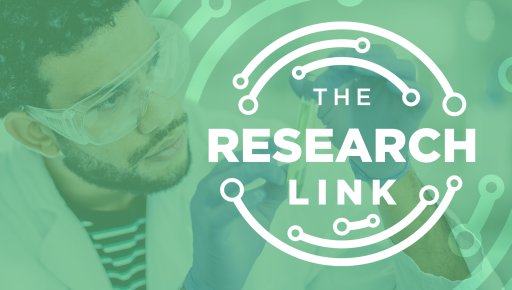In today’s workplace, everyone is talking about DEI – Diversity, Equity, and Inclusion. For many companies, these critical values are nothing more than platitudes that sound good on paper but without much action put behind them. These companies treat DEI as nothing more than corporate jargon that begins and ends with an annual training session only to be forgotten about the moment the lessons come to an end.
Companies that do make DEI a priority soon learn the benefit of a successful diversity, equity, and inclusion program. Employees become happier, are more engaged, and have higher levels of trust in the company, which is a winning situation for all involved.
To understand why DEI is important, it is important to understand what these buzzwords truly mean.
What is Diversity?
Diversity is the introduction of elements with distinct differences within a specified setting. When speaking of business settings, diversity implies the practice of hiring people from a range of different ethnic and socioeconomic backgrounds, as well as different genders and sexual orientations. Diversity can also point to individuals who speak various languages, have certain abilities and disabilities, and who are at different ages in their lives.
What is Equity?
To practice equity, a company needs to ensure that everyone who works within the same organization has access to the same opportunities, treatment, and advancement. This means that all barriers that prevent full participation of some groups need to be identified and eliminated.
What is a barrier that prevents inclusion? An example might be ensuring both males and females are given the same treatment and same levels of advancement within the company hierarchy. Another might be giving both men and women the same salary for similar roles to prevent gender pay gaps.
What is Inclusion?
Inclusion refers to the way people from varying social groups feel as part of the company collective. You may wonder how inclusion might be different from diversity. You can have people from varying socioeconomic backgrounds working at the same company, but not everyone may feel as though they fit in. When inclusion is prioritized, everyone feels welcome and valued within all work environments.
When put together, DEI – Diversity, Equity, and Inclusion comprise mutually reinforcing principles that strengthen an organization.
How Does DEI Make a Company Stronger?
To better understand the importance of diversity, equity, and inclusion, it helps to examine companies that don’t prioritize these values. When an organization only hires a certain type of people, doesn’t place everyone on the same level, or makes people within the company feel unwelcome or unwanted, all employees become disadvantaged because people aren’t able to reach their full potential. Only when the entire organization, from employees to management, feels connected as part of the whole can innovation truly occur.
To reinforce this point, a study conducted by McKinsey & Company in partnership with SHRM (The Society for Human Research Management) found that companies that exhibit gender and ethnic diversity are more likely to outperform companies that don’t focus on these values. The same study found that diverse companies earn more customers, bring in higher sales revenue, and succeed in boosting profits.
DEI Strengthens Companies that Prioritize These Values
Diversity, equity, and inclusion programs make for happier employees with increased job satisfaction. Those employees also have more trust in the company and appear to be better engaged than their non-DEI counterparts. Let’s look at some of the benefits your company can earn by making DEI a priority.
Employee Satisfaction
Companies that don’t focus on diversity, equity, and inclusion might be at a disadvantage when it comes to understanding their target customers. Companies that do focus on DEI are 158% more likely to get the ones they are selling to when they have at least a single team member who represents that individual’s gender, age, race, culture, or sexual orientation.
Higher Revenue
Studies show that diversity of country of origin, gender, industry background, and career path are correlated with higher innovation. Because there seems to be more creativity within companies that prioritize DEI, those organizations tend to earn 38% more revenue when compared to companies with lower diversity.
More Effective Management
Companies that have greater diversity among executive leadership are 27% more successful at creating value and 21% more likely to be profitable. This is likely because DEI programs allow employees to act as their true selves, creating better levels of innovation, productivity, and engagement, leading to more success at every level.
How to Introduce DEI To Your Organization
It is simply not enough to talk about DEI or even to incorporate DEI talking points into yearly training seminars. Keep the following in mind if you hope to reap the benefits of diversity, equity, and inclusion within the halls of your organization.
Get Introspective
If you feel you have a lot of work to do to make DEI a company focus, start by unpacking many of the unconscious biases you may hold without realizing it. Some companies have formed ERGs – employee resource groups – to create more inclusive language within each department. Doing the same can help you understand where DEI efforts need to be focused and to what degree.
Analyze HR Best Practices
Take a look at your human resources data to determine what hiring practices need to change. Start with your job postings and the language you use to invite new hires into your corporate community. Next, look at the demographics of talent your acquisition team seems to be working within. Then, determine if you are creating balanced teams at the bottom, the top, and all throughout the middle of your company hierarchy.
Tailor DEI Programs Across Departments
Go through each department and create unique DEI programs for each that encompass various regions and demographics. Some teams face more grueling challenges than others. Developing an empathic approach toward employee experiences will help management and executive leadership create an even playing field that contributes to diversity, equity, and inclusion in the workplace.
Don’t Just Focus on Diversity Hiring
It’s not enough to hire a mix of genders or races. Instead, change the hiring lens to recruit employees from diverse backgrounds as you seek to widen and strengthen your company culture. When each department, including management, is from a divergent set of backgrounds and includes all types of people from all walks of life, you’ll know you have succeeded in developing a fortified company culture that puts success first.
Ask for Feedback
It may not be immediately apparent where the focus needs to be placed to make your company more diverse, equitable, and inclusive. Encourage staff to share their experiences and keep an open mind. Make sure everyone knows that you value honesty and a true representation of how they feel and where biases within the company may exist. Your staff may have ideas on where DEI can be implemented but may feel intimidated about making their voices heard. Actively asking for employees’ feedback will go a long way toward walking the walk with regard to the prioritization of DEI.
Make it Known That DEI is an Important Aspect of Your Company
Use DEI-related language in your company’s mission statement, in orientation rulebooks, and on marketing and sales collateral. Your employees, management, and even your vendors should know full well that your company is on board with diversity, equity, and inclusion at every turn.
Don’t Forget Remote Employees
If your company utilizes remote assistance, it helps to keep in mind that not everyone thrives in a virtual environment. Employees with extroverted tendencies might miss out on the opportunity to engage with their fellow colleagues. Introverts might have problems with video calls. Getting to know your employees, even those working remotely, can help foster greater levels of communication, socialization, and learning within the organization.
Does Your Company Support DEI Best Practices?
Companies that prioritize diversity, equity, and inclusion have policies where all races, religions, ethnicities, countries of origin, gender, sexual orientation, abilities, disabilities, spoken languages, and ages are welcome. How does your company stack up?
If you are having trouble hiring from a diverse set of factors, and your organization is struggling to create equity and inclusivity for all, Prolink can help. We have a deep pool of qualified applicants from around the world, and from all kinds of different backgrounds. With a range of skill sets and specializations that run the gamut from healthcare and skilled trade jobs to IT Jobs and all sorts of roles in between, we can help your company develop a DEI framework that improves your company culture and bottom line.
By shining the spotlight on DEI, you can create a company culture that reinforces innovation, improves sales, and boosts revenue. It will take some work on everyone’s part, but your company will be better for it once you have succeeded in walking the walk, and not just talking the talk.
Get in touch with one of our company representatives to start the process of strengthening your company with DEI best practices.








